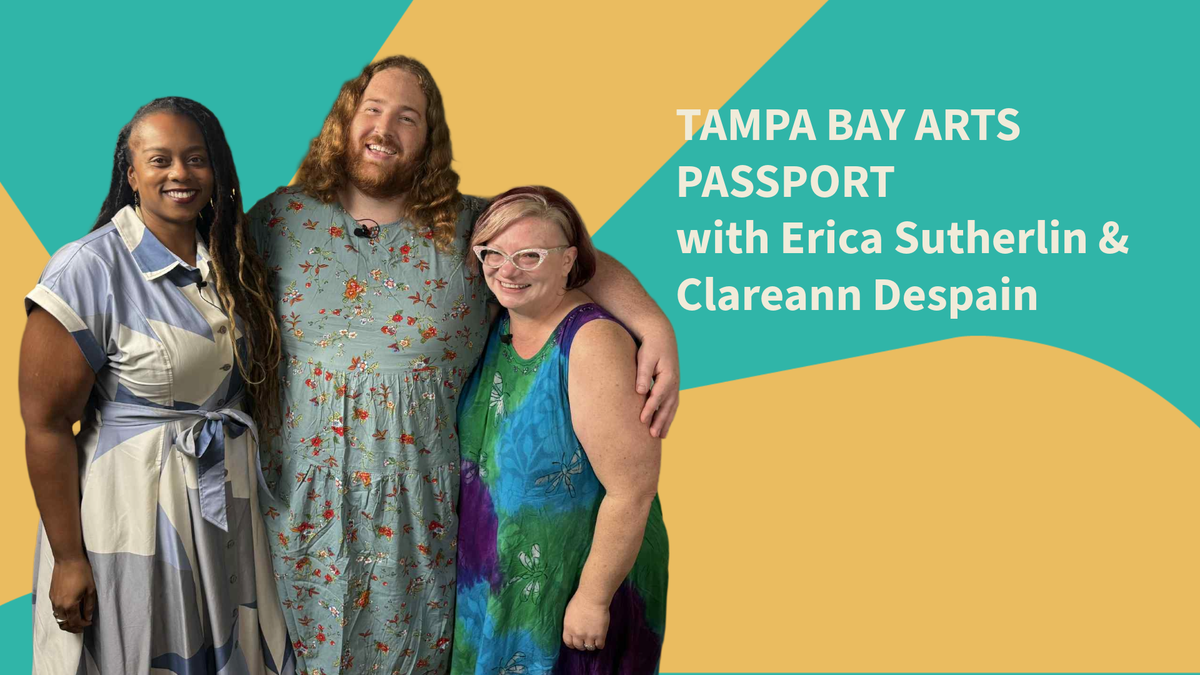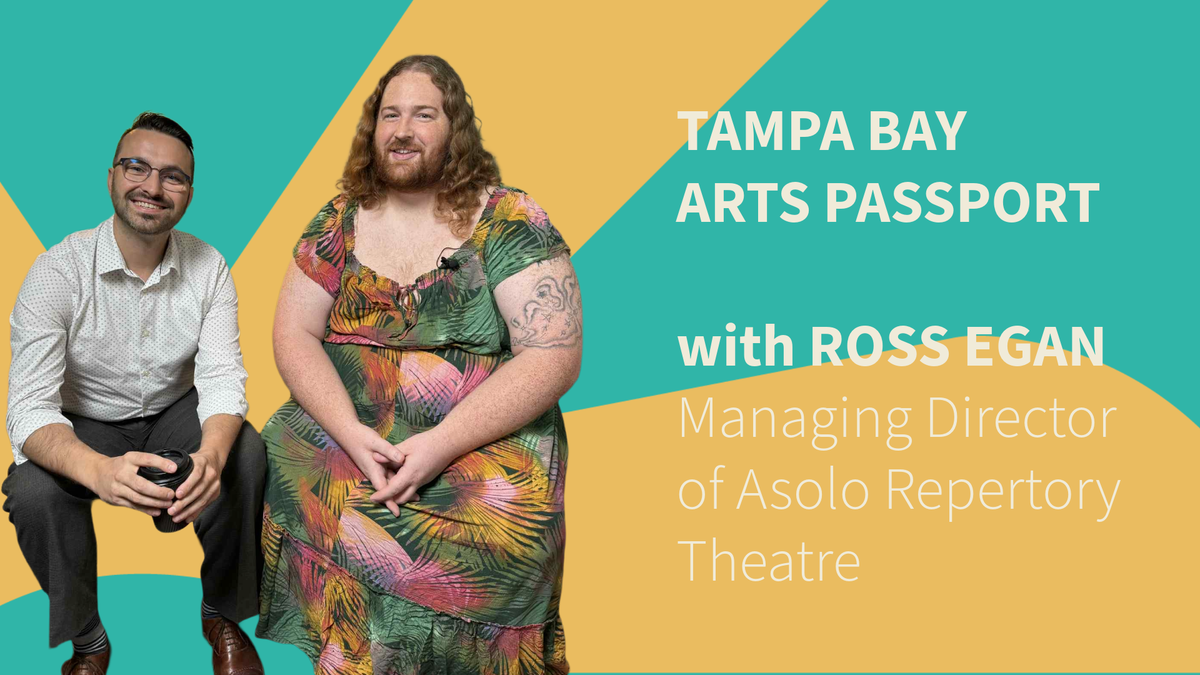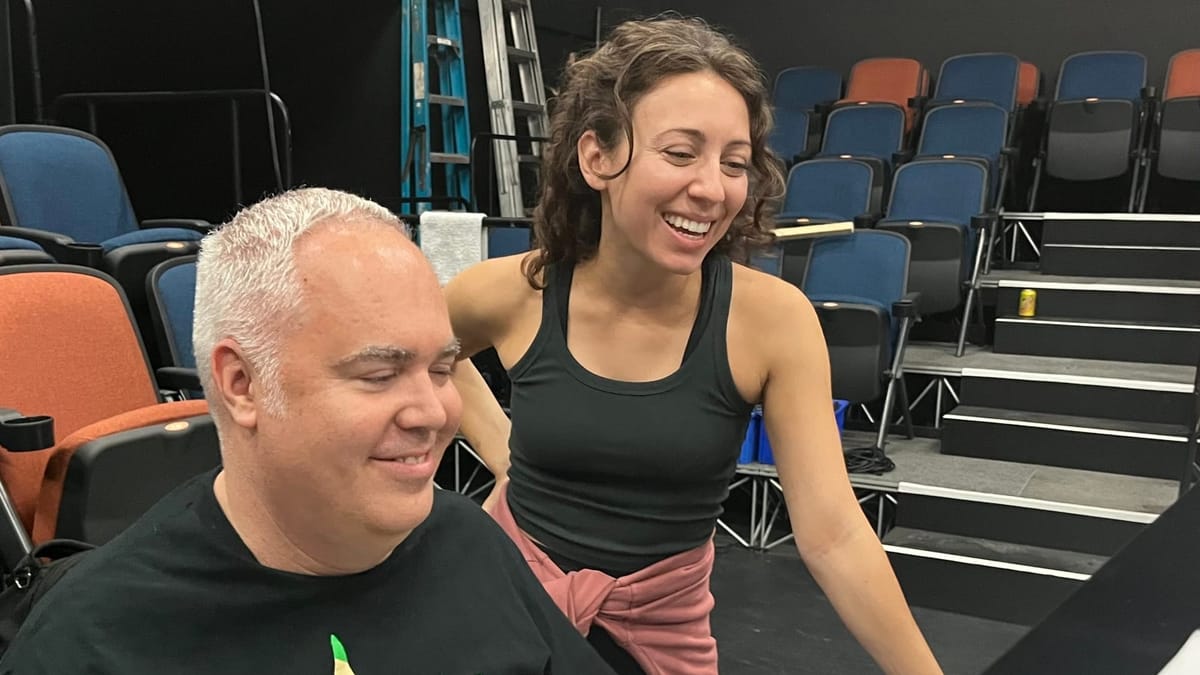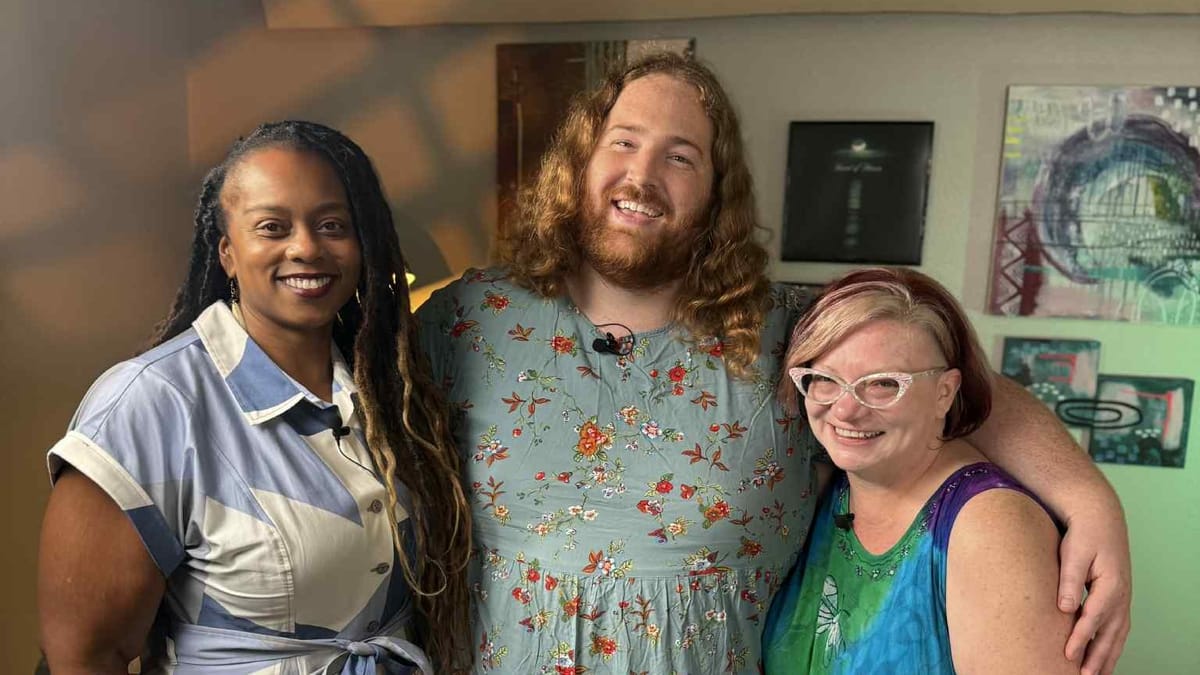Cadillac Crew, Collaboration, and the Cost of Courage
Cadillac Crew in Tampa Bay: Erica Sutherlin and Clareann Despain on Art, Equity, and Collaboration | Tampa Bay Arts Passport Podcast

Two theatres. One powerful story.
This conversation brings together Erica Sutherlin of The Studio@620 and Clareann Despain of Powerstories Theatre—the forces behind the upcoming production of Cadillac Crew.
They unpack what it means to collaborate across organizations in a funding crisis, how to tell women’s stories beyond trauma, and why the arts might just be Florida’s most radical act of hope.
Along the way, you’ll hear about postponed grants, field-mouse philosophers, and the joy (and chaos) of trying to move the cultural needle one play at a time.
👉 Listen in, laugh with us, and then go see Cadillac Crew—running this November at The Studio@620.
Listen / Watch
- 🎧 Play the episode:
Listen on Apple Podcasts
Listen on Spotify
- 🎬 Watch the video:
OTHER EPISODES


KEY HIGHLIGHTS
- Florida’s Funding Freeze: How both theatres lost state support—and why they’re still pushing forward.
- Frederick and the Field Mice: A children’s book becomes a metaphor for sustaining artists through “a long winter.”
- Beyond Black Trauma: Erica on the need for a full spectrum of Black and queer stories—pain and joy alike.
- The Blueprint City: Why St. Pete’s small arts orgs might be leading the next wave of cultural innovation.
- Joy and Survival: The one-word hopes both directors have for Tampa Bay’s arts community.
Other Coverage on Cadillac Crew

Transcript: Tampa Bay Arts Passport Podcast
Guests: Erica Sutherlin (The Studio@620) & Clareann Despain (Powerstories Theatre) Host: Avery Anderson
Avery: Hello and welcome to another episode of the Tampa Bay Arts Passport Podcast. I’m Avery Anderson. If you’re new here, we’re your insider look at arts across Tampa Bay—plus deals, discounts, and behind-the-scenes access. Please like, follow, and subscribe.
Today’s conversation is with Erica Sutherlin from The Studio@620 and Clareann Despain from Powerstories Theatre. Their organizations are partnering on Cadillac Crew, and we’re talking about what that partnership looks like, what it means for smaller arts organizations to survive and thrive right now, and why women have had to fight for their stories to be heard for more than sixty years.
The Great Name Mix-Up
Avery: All right—we are here with Erica Sutherlin and—wait—Clareann, how do you say your last name?
Clareann: Despain.
Avery: Despain! Thank you. I’ve never actually said it out loud.
Clareann: Totally fine. I’ve heard it wrong plenty.
Avery: Same. We’re not going to talk about how I said it, but I know the right way now.
Clareann: My favorite typo is “Despair.”
Avery: Honestly, “Clareann Despair” sounds like a rock star. But no, spelled correctly, pronounced Despain. Perfect. Let’s just roll from here.
Intros, vibes, and where we’re at
Avery: So—how are you both doing today?
Erica: I’m delightful.
Clareann: Tired.
Avery: Same. Mondays hit hard. And it’s been emotionally heavy lately—Creative Pinellas just lost its funding, and that’s exhausting for a lot of us.
Erica: Yeah. I’m tired too. This is year three of state-grant chaos. I was queued up for the Florida panel this morning, got an email that just said postponed. I laughed out loud—what else can you do?
Avery: For listeners: we’re talking about the Florida state arts grants. Two years ago the governor cut them completely. Last year, the qualification bar jumped so high that Powerstories and The Studio@620 both lost eligibility—620 by one point. And now, this year, the review’s just… postponed.
Erica: After you do the crying, you decide: shut it down or keep going. Historically, when the world gets chaotic, artists are the ones who swing the pendulum back toward balance. You can try to erase art—artists still show up.
Clareann: Exactly. The art doesn’t stop. What’s at risk are the jobs—the structures that let artists make a living. For a “job-creation” state, it’s a weird choice to eliminate jobs.
There’s a children’s book I love—Frederick by Leo Lionni. The other mice collect food for winter; Frederick stores sunlight and color in his mind. When the food runs out, he feeds his family with stories. I think about that a lot. Even in hard times, we need to preserve whimsy and softness—pockets of joy—so we can keep offering them to others.
What Cadillac Crew is—and why it matters
Avery: Let’s talk about Cadillac Crew. What is this play, and why did you choose it?
Clareann: Before I even started at Powerstories, I knew I didn’t want us to tell only “white-lady stories.” When I read Cadillac Crew, I heard Erica in my head saying, “I’m sick of only Black-trauma narratives—where’s the joy, where’s the spectrum?” I built our season theme, Hidden Her Stories, around wanting to do this play—and I wanted to do it with Erica and 620.
The A-plot follows four Black women activists in the civil-rights movement, fighting for women’s rights within it. They’ve arranged for Rosa Parks to speak—but on the eve of the event, the men in charge decide she’ll sit behind them and speak later at a smaller event. The play asks: why don’t we know the names of so many women who shaped the movement?
Erica: And the title points to real history—Cadillac Crews. During desegregation, groups of white and Black women drove Cadillacs through the South to support integration. It was dangerous. The play doesn’t lecture—it plants a seed. It says, “Did you know this happened?” and invites us to go learn more.
It’s not a trauma-only piece. There’s pain, but it’s not misery porn. It widens the lens on Blackness.
Are we really still here?
Avery: Sixty years later, women’s stories are still sidelined. Does that drive you nuts?
Clareann: Oh, absolutely. Sexism, like racism and ableism, is always with us. The fight’s always uphill. But there’s beauty in community and connection—that’s where we find joy.
Erica: The frustrating part is the cycle. We make progress, then undo it. We become desensitized. We’re not going back—so what’s the new thing? Love. Connection. Seeing each other. Anchor love even when the wind’s blowing. That’s the work now.
Beyond pain: a fuller spectrum
Avery: How do we help audiences embrace stories that go beyond pain—whether Black, queer, or otherwise?
Erica: It’s not just Blackness. Think of queer stories—so many center the AIDS crisis. We need those stories and we need joy. The challenge is generational. Younger audiences want different stories and different ways to engage. Leaders have to listen and balance risk with survival.
August Wilson’s cycle isn’t depressing; it’s just one facet of Black America. The problem is when people treat one facet as the whole. Stereotypes live there. Our job is to expand the facets.
Why co-produce?
Avery: Why make this a co-production instead of Erica just directing for Powerstories?
Clareann: Lean times call for living together. There’s literally a bridge between our organizations, and we wanted to build a figurative one too—shared resources, shared power, shared audiences. We’d co-produced before; it was joyful and productive. Our audiences need to be in dialogue with each other.
Erica: People always get hung up on money. I don’t think partnership has to be heavy. Start, keep the conversation open, and solve things as they come. We’re all in blueprint mode—figuring out how to build an arts destination city in real time.
Small orgs have latitude. We can take creative risks because the financial stakes are smaller. I can curate for my actual community—and if someone says, “This isn’t for me anymore,” that’s okay. We’ll find who it is for.
Clareann: Exactly. The word is nimble. We can pop up in liminal spaces, surprise people, and build those “oh… oh… oh!” moments—for artists and audiences alike. That’s how we get through Frederick’s winter.
Rapid-fire round
Avery: What does “artistic community” mean to you?
Clareann: Playmates. Who can I play with—in a heart-space that’s willing to try?
Erica: Who’s in my sandbox? We’re building castles and throwing sand.
Avery: One-word hope for Tampa Bay’s arts community?
Erica: Joy.
Clareann: Also joy—but since she took it, I’ll say survival.
Avery: Dinner with any artist, living or past?
Clareann: Anaïs Nin. Modernist writer, early women’s erotica, pioneer for women’s creative freedom.
Erica: Prince.
Avery: That’s a table I’d pay to sit at.
Closing
Avery: Thank you both for this conversation. Everyone listening—go see Cadillac Crew at The Studio@620 this November, and join us October 12 at Green Light Cinema for a screening of Hidden Figures with Erica and Clareann in conversation.
Thanks for tuning in—see you next time.



